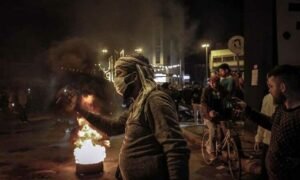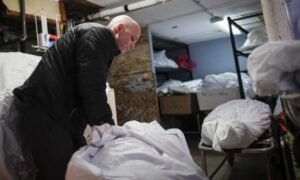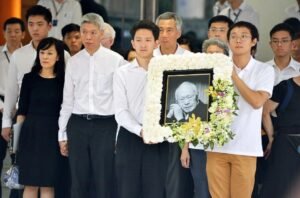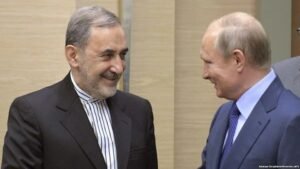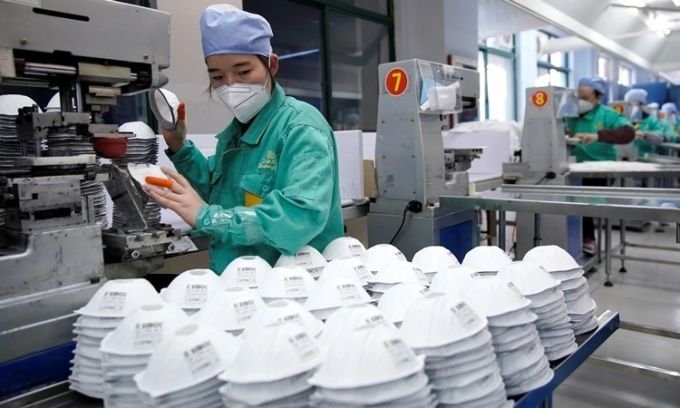
'Wild West' in the Chinese mask market 0
Speculators come to factories with suitcases full of money to buy millions of medical masks as soon as they leave the production line.
Governments of different countries do not hesitate to spend huge sums of money to purchase essential equipment before they fall into the hands of another party with stronger financial potential.
A mask production line in Shanghai.
The whole world is reeling in the hunt for medical products, from masks, gloves, hospital beds, test kits, protective clothing, hand sanitizer to goggles.
`It’s like the Wild West, where the rules are rewritten every day,` commented Fabien Gaussorgues, co-founder of Sofeast, a product quality appraisal company in Shenzhen, China.
As he spoke, Gaussorgues skimmed through a purchase request document from the United Nations (UN).
But instead of being excited about the prospect of a huge export deal, Gaussorgues’ expression showed disappointment.
Some others understand that in the `Wild West`, to survive, you must act quickly.
On the occasion of the Qingming Festival on April 4, an American state is promoting the purchase of ventilators from a Chinese factory.
Either because they weren’t aware of the holiday season in China or because they weren’t aware of the rapid pace of changes in the market, the equipment procurement department transferred an eight-figure amount in USD on Friday, right on bank day.
`If you wait more than 24 hours or spend several days doing in-depth appraisal or going to the factory to get samples, the stock will no longer be available, the broker has transferred it to another supplier. You have to start the whole process over again.
The current situation creates a market where everything is in the hands of the seller.
Central and local governments in countries are searching for medical supplies around the world amid the Covid-19 crisis.
But when alternative sources of supply such as Korea, Singapore, and Thailand limit the export of these products, China, with its huge and constantly increasing production capacity, is sometimes the only choice.
More than 38,000 new companies have registered to produce or sell masks in China since the beginning of 2020, compared to 8,549 companies in 2019.
This rapid increase stems from the overwhelming demand for masks.
The scale of the mask manufacturing industry can be seen in the exponential growth rate at Foshan Packaging Machinery Company, a food packaging manufacturer in Guangdong.
`Market demand is currently very large, even though we are operating at full capacity, we still cannot receive more orders until early May,` said Zhu Huiqing, company director.
The rapid entry of so many new companies into the market has reduced product quality, causing China to face international backlash when the products it supplies are accused of being of poor quality.
One day in March, Dan Harris, founder of the Harris Bricken law firm, received three clients, each of whom had lost $1 million on mask export contracts.
An American businessman borrowed one million USD to make an advance payment to a long-term supplier of Chinese textiles.
In another case, a buyer placed an order for $1 million worth of masks but received `dirty Halloween masks`.
`I get 40 emails a day from people wanting to know where they can import masks from. They want cheap products to sell at high prices.`
Even for those who are used to conducting transactions in China, it is still difficult for them to adapt to the dizzying pace of market expansion for masks and medical supplies over the past three months.
David Sun runs a logistics and warehousing company in the commercial center of Yiwu, China.
In March, he tried to visit a factory in Shanghai to buy N95 masks licensed for sale in the US but was stopped by police.
`I found a middleman. He claimed he had contacts and could help me buy medical masks,` Sun said.
In China these days, `mask-making machines are like money-printing machines,` Sun said.
As for the ventilator market, according to sources familiar with the matter, the price of a Chinese-made AeonMed ventilator has increased from 10,000 USD to 75,000 USD in just a few weeks.
Unlike masks, high-tech ventilators cannot be mass produced.
Yuan Xuemeng, general director of Chinese ventilator manufacturing company Shandong Penghao Electronic Technology, cannot accept more orders because it has enough orders until the end of July. The company signed a contract to supply ventilators to the Chinese government
People knowledgeable about the market blame these business units for rising prices.
`Most of the problem comes from middlemen,` said Clive Greenwood, director of Wilson, Woodman & Greenwood Associates, a company based in Suzhou that specializes in providing medical equipment to crisis hot spots.
According to Greenwood, intermediaries connect overseas buyers who do not understand the Chinese market with sellers.
John Singleton, president of American shipping company Wen-Parker, has worked with both public and private sector buyers to ship protective gear out of China.
The shortage of passenger planes, the way to transport 50% of goods by air, has caused the price of cargo flights to increase.
`If I told customers that I expected each kilogram of goods leaving Shanghai to cost $14, they would say I got too drunk last night at the bar. Before, the price was around $2.50.`
All of the above issues have created a crisis in the medical supplies market.
`It makes me think of a battle,` Singleton, a former US Air Force pilot, commented.
Vu Hoang (According to SCMP)
